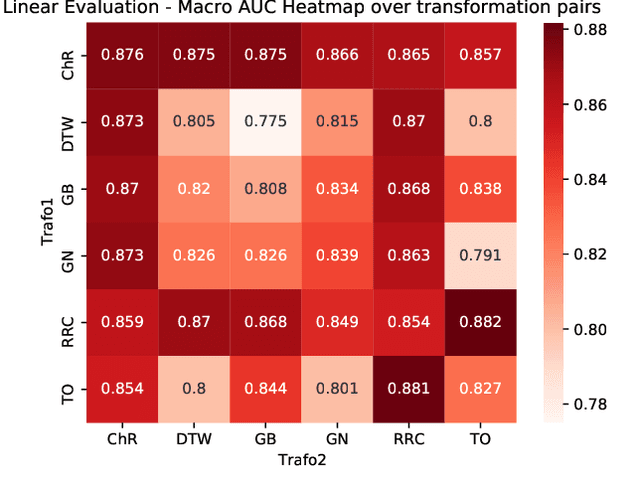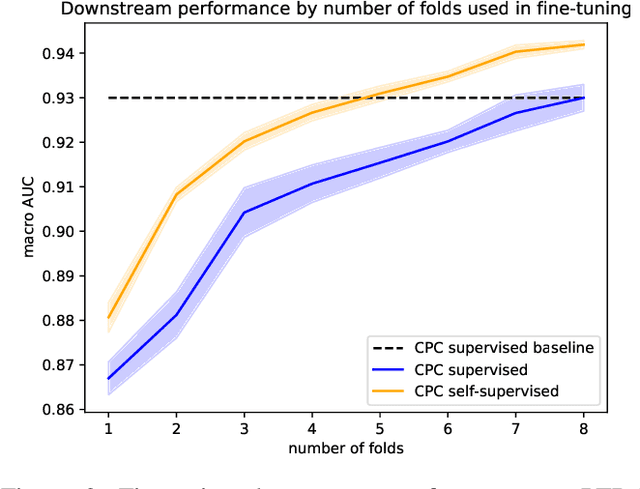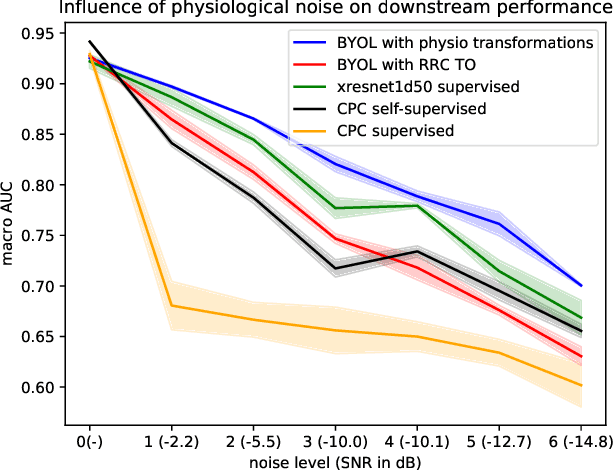Self-supervised representation learning from 12-lead ECG data
Paper and Code
Mar 23, 2021



We put forward a comprehensive assessment of self-supervised representation learning from short segments of clinical 12-lead electrocardiography (ECG) data. To this end, we explore adaptations of state-of-the-art self-supervised learning algorithms from computer vision (SimCLR, BYOL, SwAV) and speech (CPC). In a first step, we learn contrastive representations and evaluate their quality based on linear evaluation performance on a downstream classification task. For the best-performing method, CPC, we find linear evaluation performances only 0.8% below supervised performance. In a second step, we analyze the impact of self-supervised pretraining on finetuned ECG classifiers as compared to purely supervised performance and find improvements in downstream performance of more than 1%, label efficiency, as well as an increased robustness against physiological noise. All experiments are carried out exclusively on publicly available datasets, the to-date largest collection used for self-supervised representation learning from ECG data, to foster reproducible research in the field of ECG representation learning.
 Add to Chrome
Add to Chrome Add to Firefox
Add to Firefox Add to Edge
Add to Edge